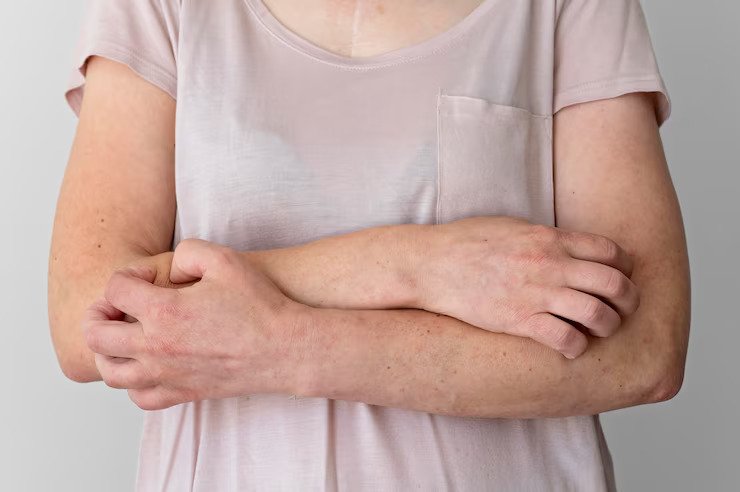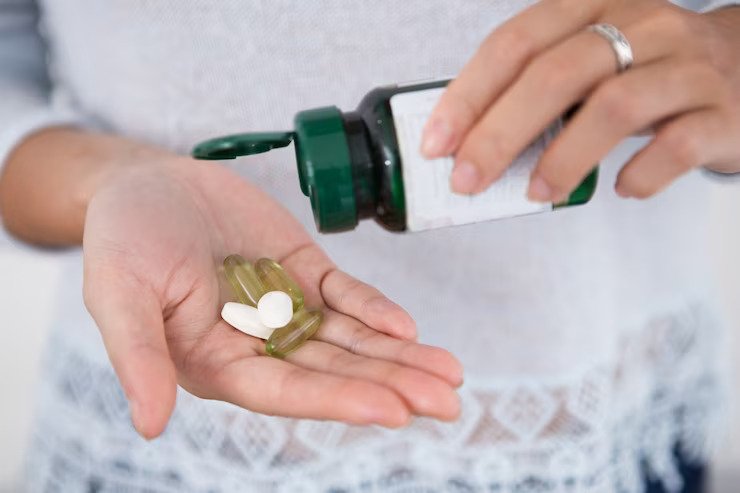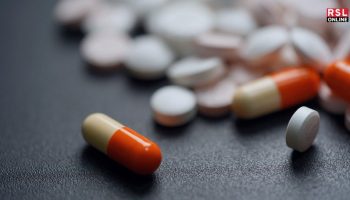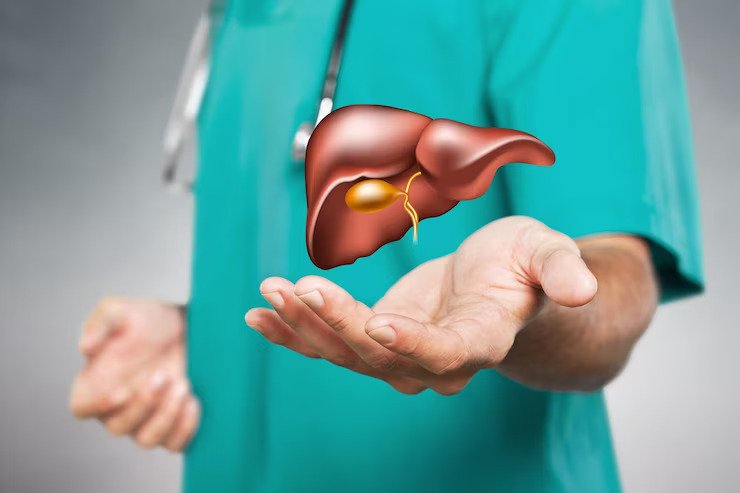In the vast orchestration of bodily functions, the liver is akin to a master conductor, ensuring harmony and balance.
This approximately three-pound organ, located beneath the diaphragm, carries out over 500 vital tasks. In addition to detoxification, protein synthesis, and biochemical production for digestion, it regulates the supply of glucose and blood pressure. It aids in controlling blood clotting and is the primary organ responsible for metabolizing drugs and alcohol.
The liver is also responsible for converting ammonia into urea, a waste product that our bodies eliminate through urine. This crucial detoxification process prevents harmful levels of ammonia from accumulating in the bloodstream. The liver’s job doesn’t stop here – it also stores essential vitamins and minerals, including iron, and releases them when our body needs them.
Recognizing Liver Health Warning Signs Through Skin

When it comes to liver health, early detection of potential problems is paramount. Our skin often acts as a mirror, reflecting the health of our internal organs, including the liver. For instance, yellowing of the skin or eyes (jaundice), severe itching, spider-like blood vessels on the skin (spider angiomas), dark urine, pale or bloody stool, swelling in the legs and ankles (edema), and unexplained weight loss can all be signs of liver issues.
Additionally, certain skin conditions have been linked with liver disease, including palmar erythema (red palms), specific nail changes such as white nails or clubbing (rounding of the nail), and Dupuytren’s contracture (thickening of the skin on the palms, leading to permanent bending of fingers).
If you are interested in learning more about these signs and how to identify them early, you can click here for a comprehensive list of warning signs of liver damage. Remember, being vigilant about these changes and seeking professional medical advice promptly can help ensure that any potential liver issue is diagnosed and treated in its early stage
Promoting Liver Health With Proper Nutrition

Nutrition is a key player in the quest for optimal liver health. The food we consume can significantly impact our liver’s ability to perform its numerous functions. Fiber-rich foods such as fruits, vegetables, and whole grains assist in digestion and help maintain liver health. These foods also support the liver in its detoxification process by aiding the elimination of waste products.
Healthy fats from sources like avocados, nuts, seeds, and olive oil are essential in combating inflammation and preventing liver disease. Moreover, lean proteins, found in foods like poultry, fish, and legumes, are crucial for maintaining and repairing liver cells, fostering overall health.
In contrast, a diet low in processed sugar can help prevent the accumulation of fat in the liver, which can lead to non-alcoholic fatty liver disease (NAFLD). Adequate hydration also plays a vital role in assisting the liver’s function of flushing out toxins.
While a balanced diet forms the bedrock of liver health, it can be supplemented with the aid of nutritional products from trusted providers like PureHealth Research. Such supplements can provide additional nutritional support, further boosting liver health. However, it’s crucial to remember that even when consuming healthy foods, moderation is key to avoid putting undue strain on your liver.
The Role Of Supplements In Liver Health

While a balanced diet is the cornerstone of liver health, nutritional supplements can provide additional support. Antioxidant-rich supplements, including Vitamins A, C, and E, and selenium, can help protect the liver from damage.
Milk thistle, an herb known for its liver-protecting properties, can be taken in supplement form. Omega-3 fatty acids, known for their anti-inflammatory properties, also contribute to overall liver health.
Before starting any new supplement regimen, consult with a healthcare professional to ensure it’s suitable for your specific needs.
Holistic Approach To Health: Prioritizing Liver For Skin Vitality

As we’ve uncovered, maintaining liver health is crucial for skin vitality and overall well-being. It’s equally important to remember that liver damage isn’t always a result of poor lifestyle choices. Factors like genetics and autoimmune conditions can also play significant roles. Regular check-ups and blood tests can help monitor liver health and spot any issues early.
If you notice any symptoms or skin changes, it’s important to consult a healthcare professional promptly. Always remember, early detection can lead to more effective treatment, preventing further complications.
Your skin mirrors your liver’s health, so adopting a liver-friendly lifestyle will reward you with not just a healthier body but also vibrant skin. From balanced nutrition and regular exercise to quality supplements, every little effort helps in ensuring a healthier, happier liver.
Conclusion
In conclusion, the surprising link between liver health and skin is one we cannot ignore. The skin, often thought of as a mere external layer, reflects the internal workings of our body, particularly the liver.
Just like a window offers a glimpse into a home, our skin offers a glimpse into our internal health. Through this lens, every blotch, blemish, or discoloration takes on a new significance. They are not just cosmetic issues but potential signposts to underlying health concerns.
Maintaining liver health is not just a proactive step towards reducing the risk of liver diseases but also an investment in your skin health. In the journey towards achieving radiant skin, let’s not forget the significant role our liver plays. And let’s remember that while the route might be challenging, the reward of health and vitality is worth every step.
Read Also:






![How to Rebuild Trust in a Relationship [According to Experts]](https://www.rslonline.com/wp-content/uploads/2024/12/How-to-Rebuild-Trust-in-a-Relationship-According-to-Experts-2-100x91.jpg)
![How to Fix a Broken Relationship [Expert’s Advice You Need to Read]](https://www.rslonline.com/wp-content/uploads/2024/12/How-to-Fix-a-Broken-Relationship-Experts-Advice-You-Need-to-Read-100x91.jpg)




















